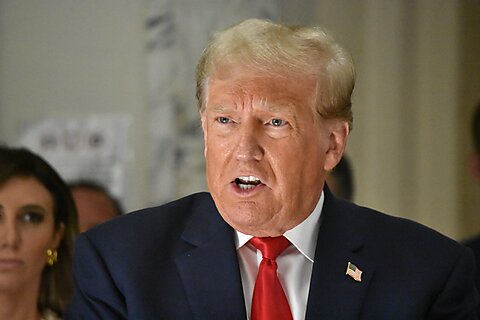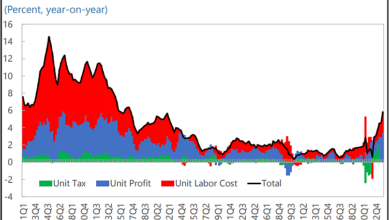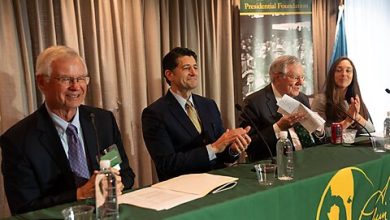Six Questions on Donald Trump’s Conviction

On May 30 a Manhattan jury convicted Donald Trump on 34 counts of falsifying business records with the intent of concealing a crime.
Of the major legal proceedings against Donald Trump this year, four criminal and two civil, you’ve described this as the one you find least persuasive. Why?
To begin with, the prosecution hinged in substantial part on campaign finance laws that libertarians think should not exist. (As has been widely observed, the hush money payment was by itself perfectly legal.) Unlike the three other criminal prosecutions, this one also had nothing to do with Trump’s abuse of presidential powers.
I’ve argued that while prosecuting a former president can be a needed and legitimate step, the offenses in question should be at least clear and serious enough for prosecutors to have charged them against an ordinary citizen. Yet Manhattan D.A. Alvin Bragg never convinced me, as an outside observer, that the novel legal theories he used to step up stale misdemeanor counts into felonies would have been deployed, other things being equal, against a Joe Schmo defendant.
Were you predicting the case would fail, then?
No, I refrained (and still do refrain) from making predictions on this. One reason is that, as a libertarian, I’m well aware that prosecutions with which I am unsympathetic convince juries every day, and then are often upheld on appeal.
A second reason I hold back from making predictions is that the case hinges on complexities I’m not well positioned to evaluate, including the niceties of federal campaign finance law and New York’s distinctive culture of white‐collar crime prosecution, which diverges in many respects from that in other states as well as federally.
You must have had some reaction to the trial.
Oh, plenty. Trump engaged in his usual stream of outrageous and vicious abuse aimed at officers of the court, combined with the factual lies we’ve come to expect from him. Bragg, in a spirit of grandstanding, “stacked” the 34 accounting entries into separate felony counts and went on to insist that the cover‐up might have stolen the presidential election, a highly implausible proposition that was not needed to prove his case and could have inflamed the jury. I could go on about both.
No, please return to the drier stuff. If you’re not an expert yourself, can you refer us to others who are?
On the federal campaign finance angle, I always take note when experts in a decidedly polarized policy area break from what is imagined to be “their” side. When the indictment was announced last year, Richard Hasen of UCLA, whom no one will mistake for a Trump supporter and who unlike me tends to favor vigorous enforcement of campaign finance laws, wrote an article in Slate entitled “Donald Trump Probably Should Not Have Been Charged With (This) Felony.”
Hasen did favor the filing of federal charges against Trump over the hush money accounting, but concedes that those charges “would not have been a slam dunk, because there were big legal and factual issues.” In the event, of course, the US Department of Justice chose not to prosecute, while New York did. And the New York version of the case, Hasen wrote, would have not only the old problems but also “new, more serious ones,” all of which could lead to reversal on appeal. It’s hard for me to find fault with his argument, which I recommend in full.
Okay. Was the trial “rigged”?
Writing in the New York Times, defense and appellate lawyer Roger Stavis, who boasts decades of relevant local practice experience, agrees that the cluster of legal theories boosting misdemeanors into felonies will be the prosecution’s chief vulnerability on appeal. But his good news for Donald Trump ends there. He predicts that challenges on other grounds, based on such things as Judge Juan Merchan’s procedural and evidentiary rulings, are unlikely to work and at most may result in a ruling of harmless error. (More from criminal law experts here.)
At Lawfare, attorney Lee Kovarsky also says Trump has non‐frivolous grounds for appeal related to the step‐up theories. But he rejects the widely bruited idea that the defense was not given ample notice of which “object crimes” (crimes that the record falsification was meant to conceal) the prosecution intended to rely on (see also). And he says Trump’s familiar assortment of other complaints—bias in the judge or jury pool, selective prosecution, and so forth—will not get him anywhere on appeal.
Wait a minute. You can’t appeal a criminal conviction on the grounds the prosecution was selective or the judge was against you?
On appeal, you will nearly always have to show legal insufficiency of the charges or judicial error that affected the outcome, not just that someone had it in for you. Welcome to the state of criminal justice as experienced by everyone.





